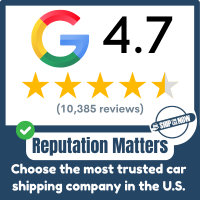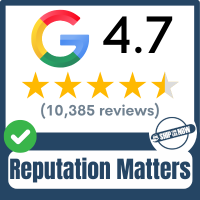Oil makes your vehicle run properly by lubricating moving parts. If your oil isn’t doing its job then what happens to you car? Do you need synthetic oil to keep your engine safe?
Oil has chemicals added to it to make it keep your car running longer. There are rust and corrosion inhibitors to keep your engine running longer, detergent-dispersal additives to clean and prevent engine build-up, and viscosity modifiers to keep the oil flowing in low temperatures.
Regular or Synthetic Oil?
When choosing oil you must consider the climate you live in. The lower the first number (ei. 5W and 10W) the better it will work in colder weather. The second number is the thickness of the oil, the higher the number the thicker the oil will be.
Shell has announced a new oil to help drivers during Canadian winters. This oil is expected to be out before Christmas, and is a synthetic oil that meets the latest specifications for today’s heavy duty engines.
Synthetic oil is ideal for extreme conditions, like cold Canadian winters. Synthetic oil is designed to retain stricter and the ability to lubricate and guard against engine wear where standard oil can’t. In temperatures like those experienced in Canadian winters, regular oil is unable to stand up to the cold and lose their structure.
Today’s Trucking feature on Canadian Winters.
Shell Announces New Oil for Canadian Winters
Posted: Nov 9, 2012 04:49 PM | Last Updated: Nov 9, 2012 04:49 PM
NEW YORK, NY. — A new low-viscosity oil from Shell Rotella was designed with the Canadian winter in mind.
Scheduled to hit the market before Christmas, Shell Rotella T6 0W-40 is a full synthetic oil that meets the latest oil specifications for modern heavy duty engines.
“It is something our Canadian distributors and customers have asked us for,” said Matt Urbanak, a heavy duty diesel engine oil specialist with Shell Global Solutions, at a press conference in New York City yesterday.
“It may eventually become a global product for other areas of the world,” he said, “but it was primarily designed for the Canadian market where we were looking to launch a 0W-40 product that met the latest APS specification.”
Urbanak said Rotella T6 0W-40 provides the best low-temperature flow within the Rotella portfolio.
“As it is CJ-4 quality, it is suitable for the most recent vehicles that have the 2010-compliant emissions systems – SCR, Advanced EGR, anything that requires CJ-4 or previous specifications,” he said.
The new oil meets API CJ-4/SN, Volvo VDS-3, and Mack EO-N, and Caterpillar specifications.
Urbanak described the development process, which involved thousands of hours of testing in a “cold box” set at -34C, connected to a dynamometer which “motors” the engine and pumps oil from the sump without firing the engine (which would quickly increase the temperature).
The testing involved exhaustive wear measurements including top ring weight loss, and crosshead wear in which it scored a perfect 700 out of 700 in a Cummins ISM engine test.
Urbanak said it was also developed to offer excellent sludge control and soot handling.
“In other words, performance should carry through, not just when the oil is new in the engine, but also throughout the entire oil drain,” he said.
The measurement of current required by the dynamometer to turn the engine suggests the oil could also reduce strain on starters and batteries.
“Much less current was needed in the dynamometer to power that engine up to maximum torque,” he explained. “That data suggests that under these extreme low temperatures a 0W-40 could extend the life of these components, compared to using a 15W40.”
Shell Rotella T6 0W-40 replaces T5 0W-40 and T5 0W-30 which met earlier specs and which will be phased out.
There is a saying that thicker oil is better. In reality, bearing clearances have become smaller and if you use thicker oil it can interfere with oil flow and cause to high oil pressure. It may be okay in an older and worn engine because the bearing clearances have become larger over time, but if able you should go with the manufacturers’ recommendation found in the owner’s manual. In extreme cold you may need a thinner oil then what your manual tells you, and should be discussed with a mechanic.







Senior automotive logistics professional with a passion for the industry and a 10+ year history of accomplishments. Proven track record of exemplary client management working with both RMCs, Van Lines and OEMs. Keen ability to react to an ever-changing marketplace while offering superior technology solutions, programs and services. Architect of award winning auto transport portal technology offering transparency and agility to clients, agents and transferees. Successful team builder and leader easily managing budgets with effective leadership, strategic planning, and problem-solving capabilities.